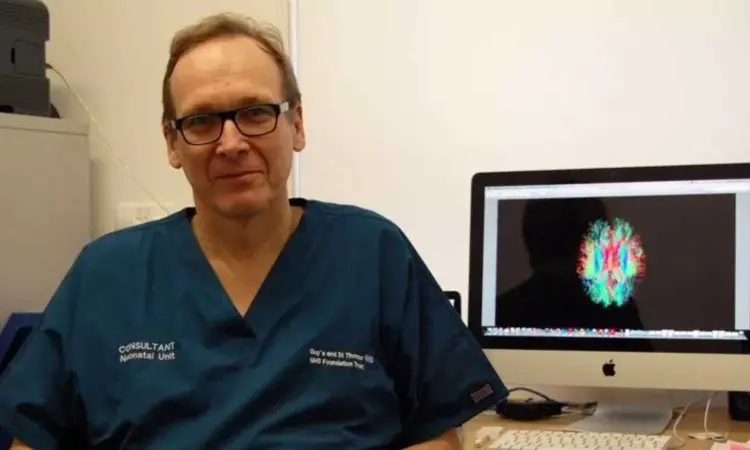- Home
- Medical news & Guidelines
- Anesthesiology
- Cardiology and CTVS
- Critical Care
- Dentistry
- Dermatology
- Diabetes and Endocrinology
- ENT
- Gastroenterology
- Medicine
- Nephrology
- Neurology
- Obstretics-Gynaecology
- Oncology
- Ophthalmology
- Orthopaedics
- Pediatrics-Neonatology
- Psychiatry
- Pulmonology
- Radiology
- Surgery
- Urology
- Laboratory Medicine
- Diet
- Nursing
- Paramedical
- Physiotherapy
- Health news
- Fact Check
- Bone Health Fact Check
- Brain Health Fact Check
- Cancer Related Fact Check
- Child Care Fact Check
- Dental and oral health fact check
- Diabetes and metabolic health fact check
- Diet and Nutrition Fact Check
- Eye and ENT Care Fact Check
- Fitness fact check
- Gut health fact check
- Heart health fact check
- Kidney health fact check
- Medical education fact check
- Men's health fact check
- Respiratory fact check
- Skin and hair care fact check
- Vaccine and Immunization fact check
- Women's health fact check
- AYUSH
- State News
- Andaman and Nicobar Islands
- Andhra Pradesh
- Arunachal Pradesh
- Assam
- Bihar
- Chandigarh
- Chattisgarh
- Dadra and Nagar Haveli
- Daman and Diu
- Delhi
- Goa
- Gujarat
- Haryana
- Himachal Pradesh
- Jammu & Kashmir
- Jharkhand
- Karnataka
- Kerala
- Ladakh
- Lakshadweep
- Madhya Pradesh
- Maharashtra
- Manipur
- Meghalaya
- Mizoram
- Nagaland
- Odisha
- Puducherry
- Punjab
- Rajasthan
- Sikkim
- Tamil Nadu
- Telangana
- Tripura
- Uttar Pradesh
- Uttrakhand
- West Bengal
- Medical Education
- Industry
UK Professor David Edwards conferred with Medical School's personal tutor of the year award

London: Renowned neonatologist and Head of Perinatal Imaging and Health, School of Biomedical Engineering & Imaging Sciences, Professor David Edwards has been named personal tutor of the year, being cited as a source of support and encouragement for his tutees over the years.
This honour is a yearly teaching award organized by the Faculty of Life Sciences & Medicine Development team that encourages those involved with the Medical School to nominate outstanding teachers and formally acknowledge their work.
Dr David directs the Centre for the Developing Brain at King’s College London and the King’s Health Partners Institute for Women & Children’s Health.
"He has always listened to feedback from tutees and organized social events for tutees to meet one another across year groups. Even with the demands of being a senior academic, Professor Edwards is generous with his time and makes a concerted effort to get to know students. He has had a hugely positive impact on students’ journeys at King’s and helped them become confident in their abilities", the feedback read.
Expressing his happiness over the occasion, Professor David stated, "It’s a real pleasure to work with the medical students, who are a wonderfully motivated and smart group of young people."
Appreciating the efforts of the doctor, Professor Nicky Cohen, Dean, Medical School stated, " We were delighted to recognise Professor Edwards for his enthusiastic support of medical students over many years. Many congratulations to him."
Professor Seb Ourselin FREng, Head, School of Biomedical Engineering & Imaging Sciences also congratulated the doctor and added, " It is with teachers like him that our School nurtures students to become successful and positive future leaders in healthcare."
David Edwards is a consultant neonatologist at the Evelina London Children's Hospital and Professor of Paediatrics & Neonatal Medicine at King's College London. He has studied the mechanisms of perinatal brain damage, working to reduce death and severe neurological impairment.
He discovered that the mechanism of birth asphyxia critically includes the triggering of massive neural apoptosis. He found that reduced temperature interrupts a post-asphyxial apoptotic programme and with colleagues around the world translated this discovery into the first successful treatment for birth asphyxia, now in routine use across the world.
He implemented Magnetic Resonance Imaging (MRI) to study very preterm infants, installing an MRI scanner in the Neonatal Intensive Care Unit to allow the sickest and most vulnerable infants to be engaged in research programmes.
He now leads a European Research Council Developing Human Connectome Project, which is making available over 1000 fetal and neonatal brain MR images to allow researchers to study the development of brain connectivity in the perinatal period. His work made him the second British winner of the prestigious Arvo Ylppo International Gold Medal in 2007.
Sanchari Chattopadhyay has pursued her M.A in English and Culture Studies from the University of Burdwan, West Bengal. She likes observing cultural specificities and exploring new places.


